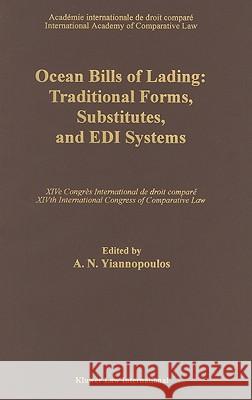Oceanbills of Lading » książka
Oceanbills of Lading
ISBN-13: 9780792333616 / Angielski / Twarda / 1995 / 312 str.
The main thrust of this volume is the use of electronic bills of lading in lieu of the traditional documents. The advantages of electronic bills of lading are many, including lower cost, higher efficiency, improved security, and speedier delivery of goods at the end of the voyage (the collection of reports focus upon bills of lading for the international carriage of goods by sea). According to the contributors, the use of electronic bills of lading is, essentially, a business rather than a legal decision. The law may provide the legal framework for the function of electronic bills of lading in the same way and with the same effects as the traditional bills of lading. However, business interests will eventually determine whether the availability of, and the economic incentives for, the use of the electronic bills of lading outweigh concerns for privacy and the safeguarding of trade secrets, for accuracy of information, and for security transactions and acquisition. Such concerns call for technological rather than legal solutions. This book ahould appeal primarily to practitioners who are interested in economics and commerce.











